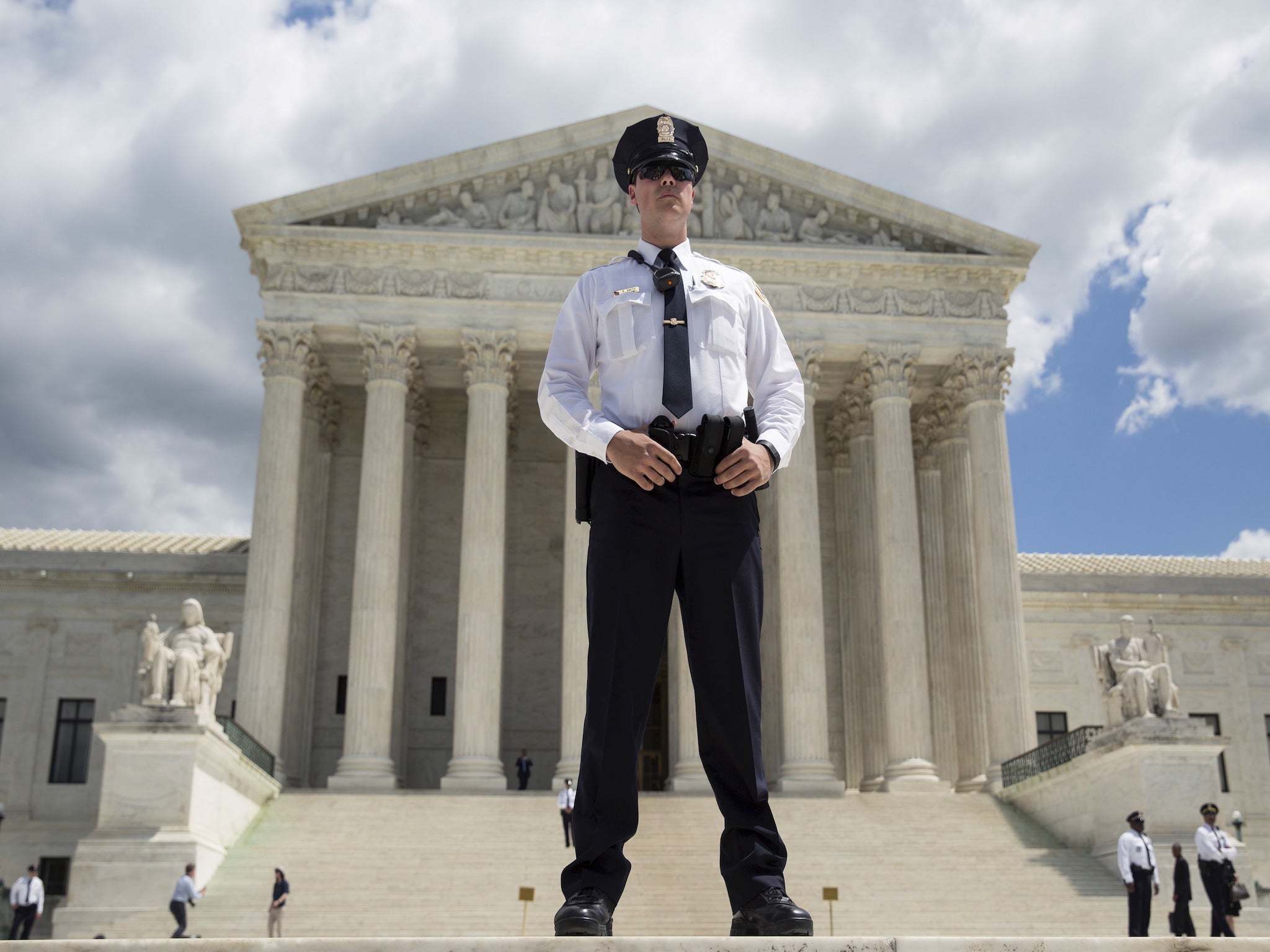US Supreme Court divided on fate of President Obama's immigration plan
Obama immigration plan likely to languish if Court ruling ends up a tie

The United States Supreme Court appeared to be as ideologically riven as ever on Monday as it heard arguments in a case that will decide the fate of President Barack Obama’s efforts to shield from deportation as many as 4 million people living illegally in America.
Encouraged by Republicans in Congress, 26 states had joined to challenge a pair of executive orders issued by President Obama 18 months ago to broaden the circumstances under which undocumented residents might be spared the threat of being ejected from the country.
While Mr Obama said at the time that he had been forced to act precisely because Congress had failed to pass immigration reform, Republicans on Capitol Hill contend that he was simply attempting to usurp the power of Congress to get his own way on the issue.
Thus the top court, which will not rule until the end of June, once again finds itself handling one of the land’s hottest political potatoes (and in an election year). At issue is not just immigration policy but also the never-resolved struggle for power between the executive and legislative arms of the US government - the White House and Congress.
The Court is considering whether to uphold a ruling by a lower court in Texas that put a block on the Obama actions. With just eight justices following the death of right-leaning Antonin Scalia in February, the Court more than ever is evenly split between progressives and conservatives.
This raises the prospect of a tie when the Court rules on the issue at the end of June, an outcome that would leave the lower court’s ruling intact - and Mr Obama’s initiative in limbo.
Specifically, Mr Obama sought to spare from deportation parents who entered the US illegally but who then had children within its borders and to expand an existing programme for those bought into the country illegally by their parents when they were still children. Roughly four out of the 11 million people in the country illegally would have been affected by the two orders.
Justice Sonia Sotomayor, who was appointed to the Court by President Obama, seemed to indicate her support for the executive actions evoking the11 million immigrants in the US who are living “in the shadows” because of the permanent fear of being caught and sent back out.
By contrast, Justice Anthony Kennedy wondered out loud about Mr Obama attempting to defer deportations without the authorisation of Congress, suggesting that it would be a “legislative task, not an executive task.” Justice Kennedy went on: “It’s as if the president is defining policy and the Congress is executing it. That’s just upside down.”
The struggle over immigration reform has emerged as one of the most urgent topics of the presidential race, particularly since Donald Trump, the Republican frontrunner, began vowing to deport all 11 million illegal immigrants and then build a wall along the border with Mexico.
Subscribe to Independent Premium to bookmark this article
Want to bookmark your favourite articles and stories to read or reference later? Start your Independent Premium subscription today.

Join our commenting forum
Join thought-provoking conversations, follow other Independent readers and see their replies